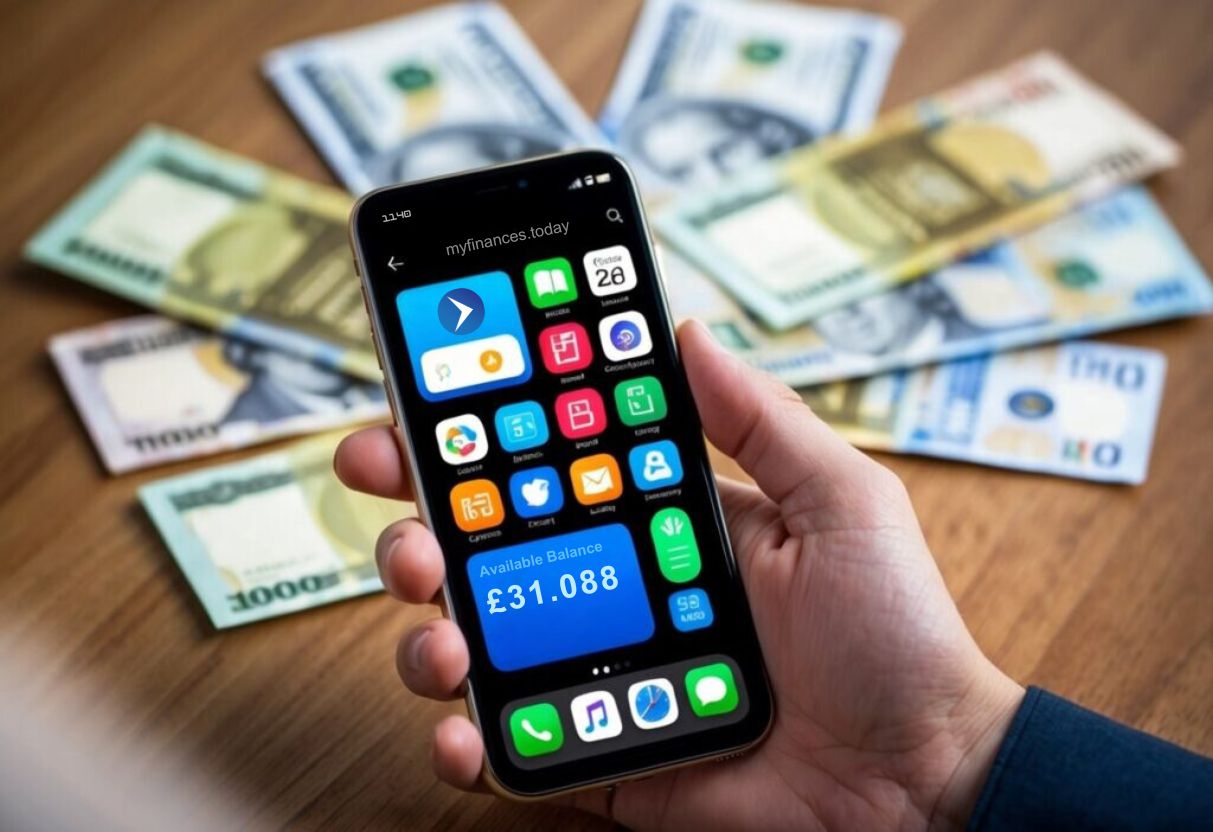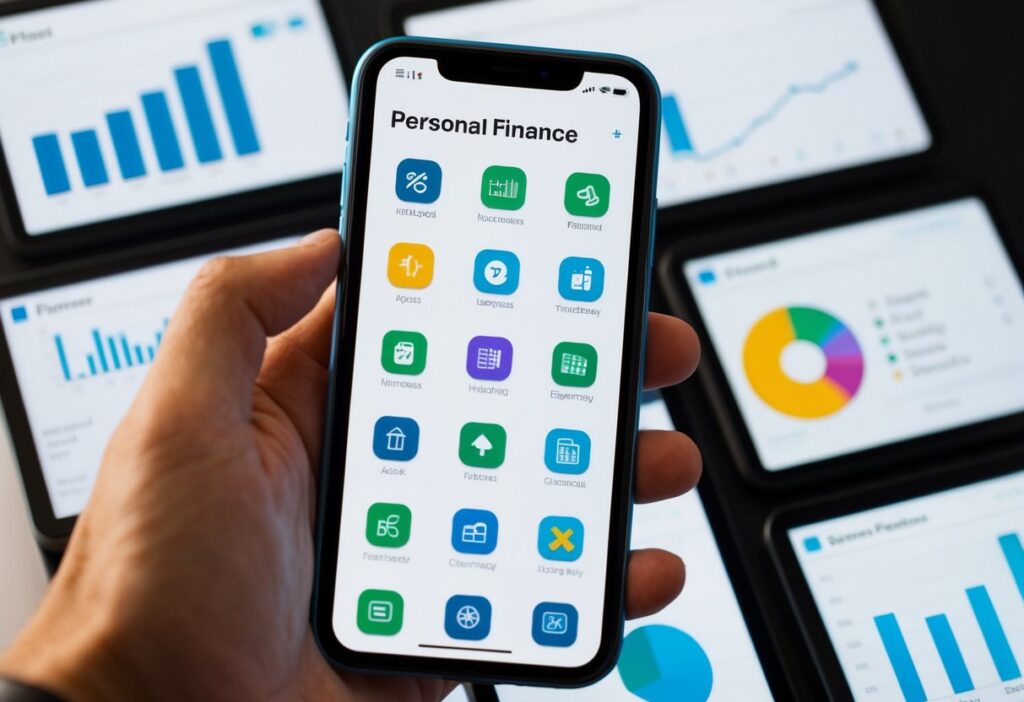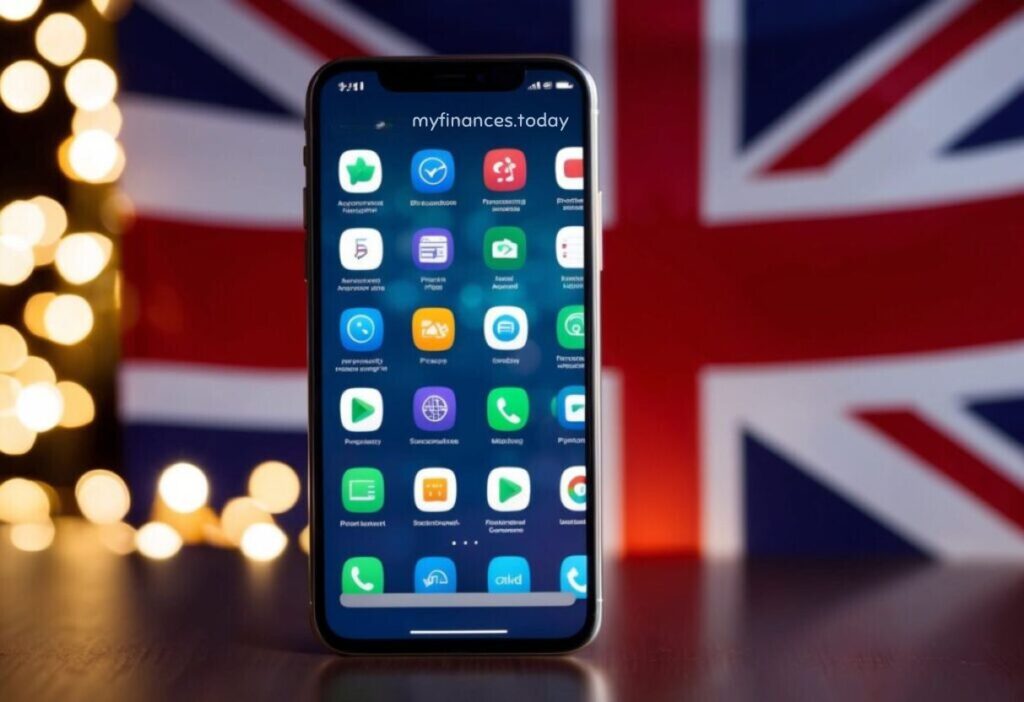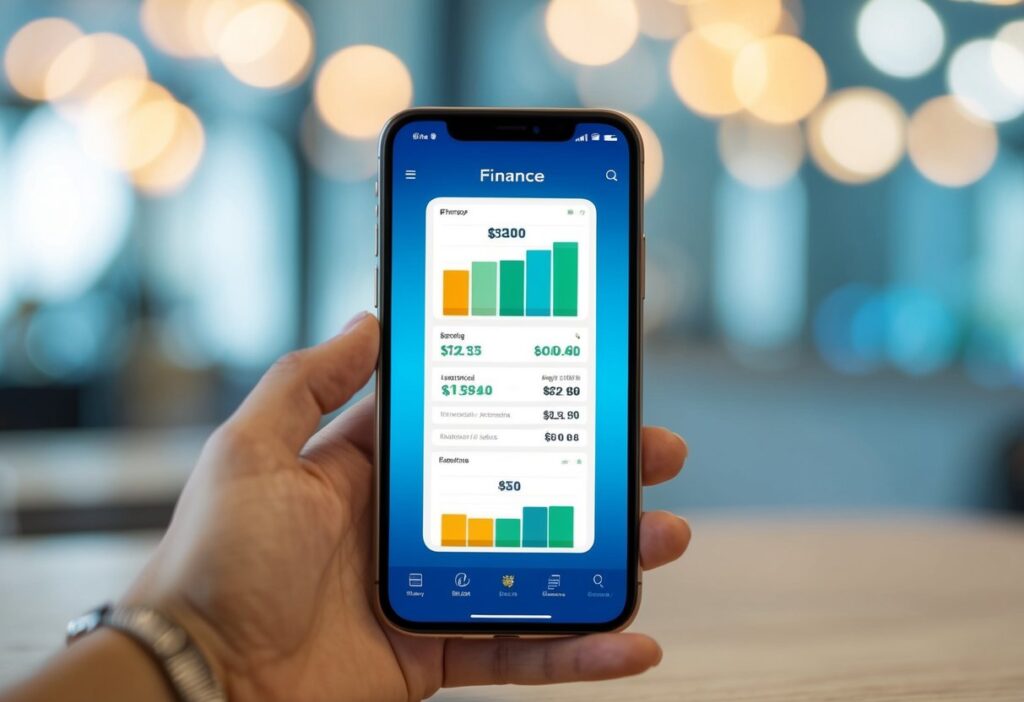Managing money can be a challenge, but personal finance apps are making it easier. These apps offer tools to help users budget, save, and track expenses effectively. With many options available, it’s important to choose one that fits your specific needs.

In the UK, several apps stand out for their user-friendly features and robust security measures. Whether you’re looking to save more or simply track your spending, these apps can support your financial goals.
Key Takeaways
- Personal finance apps simplify money management.
- The UK offers numerous options with strong security features.
- Choosing the right app is key to achieving financial goals.
Overview of Personal Finance Apps

Personal finance apps are useful tools for tracking expenses, setting budgets, and saving money effectively. They have features tailored to simplify money management and offer several benefits that can empower users to take control of their finances.
Features to Look for in a Finance App
A good finance app should include basic features like expense tracking and budgeting. Users should also look for apps with clear user interfaces and easy navigation. Apps that sync with bank accounts can provide real-time updates, which is crucial for staying on top of spending.
Security features are important as well. Look for apps that offer encryption and two-factor authentication to protect personal information. Some apps provide financial insights and suggestions, giving users a better grasp of their financial health.
For those who invest, some apps offer investment tracking and portfolio management. This can be especially beneficial for individuals looking to grow their wealth through investments. Notifications and alerts for bills and expenses can also be helpful to avoid late fees.
Benefits of Using Finance Apps
Finance apps can help users monitor their spending habits. By categorising expenses, they make it easier to see where money goes each month. This awareness encourages better financial decision-making.
Budgeting features allow users to set spending limits and goals, often with analytics that show progress. This can lead to improved savings and smarter management of finances.
For busy individuals, finance apps offer convenience. Everything is at their fingertips, accessible from a smartphone or tablet. This accessibility means users can check their financial status anywhere, anytime. Over time, this can lead to improved financial habits and increased savings.
Top Personal Finance Apps in the UK

Managing money can be simpler with the right tools. There are apps for budgeting, investment, savings, debt management, and credit monitoring that can help users achieve their financial goals.
Budgeting and Expense Tracking
For those looking to manage daily expenses, Monzo and YNAB (You Need A Budget) offer strong solutions. Monzo allows users to see spending habits clearly and categorise expenses. Users can set spending limits and receive alerts.
YNAB focuses on assigning each pound a job. It’s excellent for those who want to plan expenses and save for future goals. Both apps sync with bank accounts for real-time updates. Customisation is key, as users can prioritise what matters most in their budgeting.
Investment and Savings
Moneybox and Nutmeg are top choices for investment and savings. Moneybox rounds up everyday purchases and invests the change, making saving automatic. It’s ideal for those new to investing and saving, as it simplifies the process.
Nutmeg provides options for those with clear investment goals. Users can choose between managed portfolios and self-invest options. It excels in offering flexibility and control, giving users the ability to adjust their strategies without being overwhelmed by complex processes.
Debt Management and Credit Monitoring
Apps like Clearscore and Experian offer solutions for debt management and credit monitoring. Clearscore provides free monthly credit reports and tailored advice. It helps users understand their credit score and how to improve it.
Experian not only offers credit scores but also personalised insights into borrowing habits. Users can track changes and receive alerts about their credit activity. These apps are invaluable for those focusing on improving their credit and managing debt effectively.
Security Considerations

When using personal finance apps, focusing on security is crucial. Protecting user data through strong privacy measures and using encryption helps in safeguarding personal information.
Data Privacy
Data privacy is a top priority for personal finance apps in the UK. Users must choose apps that clearly state what data they collect, why they collect it, and how they use it. Look for apps that align with GDPR standards to ensure compliance with UK regulations. Transparency in privacy policies builds trust.
Opt for apps that allow users to manage their privacy settings with ease. This includes options to disable data sharing with third parties. It is important for users to check if the app gathers only necessary data, thereby limiting exposure to risks.
Encryption and Security Protocols
Encryption is vital in keeping transactions and personal information safe. Top personal finance apps use end-to-end encryption, ensuring that only the intended recipient can read the data. This makes unauthorized access extremely difficult. Many apps also use two-factor authentication (2FA) to add an extra layer of security.
It is crucial to choose apps that regularly update their security protocols. Regular updates help in addressing potential vulnerabilities. Apps should also provide immediate alerts for suspicious activities to prevent any misuse. By focusing on encryption and security, users can manage their finances with greater peace of mind.
Getting Started with a Finance App

Using a finance app can be a game-changer for managing money effectively. Setting financial goals and monitoring spending are essential to maximising the app’s benefits.
Setting Financial Goals
When starting with a finance app, it’s crucial to set clear financial goals. Goals might include saving for a new car, reducing debt, or building an emergency fund. Begin by defining what you want to achieve and by when. This clarity helps in selecting features within the app that align with these objectives.
Many apps allow users to break down goals into smaller, manageable steps. This approach keeps motivation high and progress visible. For example, an app might let users track weekly savings toward a larger goal.
Some apps provide reminders and alerts. These can nudge users to stay on track. Setting realistic deadlines and amounts is key to avoiding frustration. Additionally, users should regularly review these goals and adjust them if needed. Doing so ensures that the goals remain achievable and relevant.
Regular Usage and Monitoring
Regular usage of a finance app ensures better money management. Users should log in frequently to see real-time updates on their financial status. By keeping an eye on expenses and income, users can make informed spending decisions.
Finance apps offer features such as categorising expenses. This makes it easy to spot trends and identify areas where spending might be cut. Consistent monitoring can prevent overspending and help maintain a balanced budget.
Scheduled notifications and alerts can serve as helpful reminders to check account activity. They ensure that users remain aware of their financial situation. By engaging with the app regularly, users can better manage their cash flow and stay on top of their financial goals.